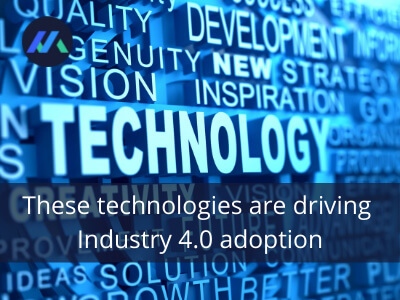Manufacturers will never build in the same way again as a result of Industry 4.0 – the Fourth Industrial Revolution. Manufacturers across all industries are digitizing their businesses to discover new, more cost-effective ways to source materials, run production lines, serve customers, and analyse their results for continuous improvement.
As with any significant change, Industry 4.0 may appear challenging to manufacturing professionals unfamiliar with its implications. Indeed, numerous technologies may play a role in the current revolution. The challenge is to determine which of these technologies have the greatest potential to transform the way you conduct business.
Artificial intelligence, additive manufacturing, and blockchain are three technologies that are shaping up Industry 4.0.
As with the majority of Industry 4.0 technologies, artificial intelligence, additive manufacturing, and blockchain all have one thing in common: they are cloud-based. This means you’ll have easy access to the data storage space and computing power required to analyse the massive amounts of data generated and consumed by these technologies.
Artificial intelligence (AI) assists you in resolving issues by learning from patterns in your data that you might not have noticed on your own. How is this accomplished? By combining automation and machine learning for the purpose of analysing massive amounts of data. This enables you to identify undesirable trends in machine downtime, pinpoint periods of high scrap rates, and use these insights to make more informed profit-maximizing business decisions.
Additive Manufacturing has grown in popularity even outside the manufacturing sector, with the majority of people referring to it by another name: 3D printing. Manufacturers are only beginning to explore the full range of additive manufacturing applications. Several researchers have combined machine learning and generative design to generate alternative part designs.
Blockchain technology improves transparency from raw material procurement to final product delivery and confidence at any level of the industrial value chain. Combining blockchain technology and the Internet of Things aid in resolving issues such as provenance, counterfeit identification, and asset tracking in supply chain management. It also enables new approaches to maintenance (such as digital service agreements) and faster turnaround times.
At Makoro™, we use AI & advanced data analytics to make asset performance management recommendations in the natural language of the user so they can easily understand and act upon the recommendations. This enables faster, better and compliant decision making.


